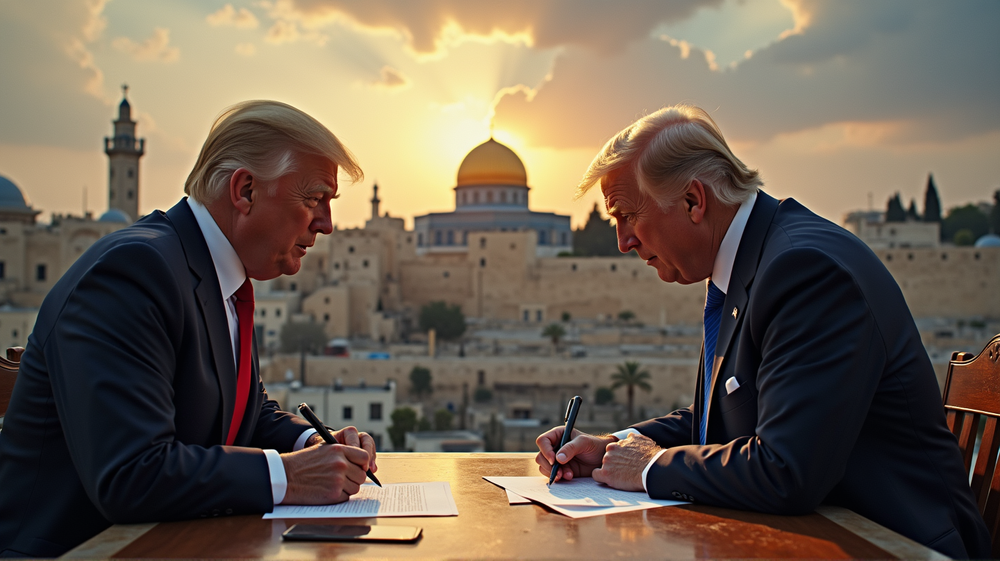In a move sparking significant political ripples, US President Donald Trump has sent a formal letter to Israel’s President Isaac Herzog, fervently urging him to grant a full pardon to Prime Minister Benjamin Netanyahu. This unprecedented plea unfolds against the backdrop of Netanyahu’s long-standing legal battles over bribery and corruption charges—accusations he vehemently denies.
A Plea Amidst Political Turmoil
Trump’s letter acknowledges the autonomy of Israel’s judiciary, yet he describes the proceedings against Netanyahu as “political and unjustified.” This development comes after years of courtroom drama wherein Netanyahu, the first sitting Israeli Prime Minister to be tried, faces allegations rooted in high-profile exchanges for luxury gifts and favorable media coverage. Despite the severity of the charges, Trump’s intervention introduces a fresh dynamic, according to BBC, aiming to realign global perspectives on Netanyahu’s trial.
The Backstory of the Accusations
The accusations Netanyahu faces are steeped in political controversy. In the first case, prosecutors contend he accepted gifts such as cigars and champagne, allegedly traded for political favors. The subsequent charges involve allowing positive newspaper coverage to secure improved financial circulation, and regulatory benefits purportedly exchanged for favorable telecom reporting. Netanyahu, unwavering, continues to label this a “witch-hunt.”
Diplomatic Reverberations and Legal Pathways
Herzog’s retort to Trump’s request was diplomatic yet firm, recognizing Trump’s steadfast support for Israel while underscoring legal protocols that necessitate formal pardon requests. Meanwhile, opposition leaders, such as Yair Lapid, have vocalized both skepticism and a renewed assertion of Israel’s sovereignty, cautioning against undue external influence.
Perspectives on Pardoning: A Nation Divided
Public dialogue in Israel remains deeply divided over the pardoning prospect. While Netanyahu’s supporters within his Likud party press for clemency, seeing him as a steadfast leader, opponents perceive this move as a potential erosion of legal integrity amidst broader judicial reforms. The discourse speaks to fears about the preservation of democratic principles—a cornerstone tested in recent mass protests.
A Global Interlude: Implications Beyond Borders
This latest chapter in Israeli politics doesn’t merely echo within its borders but affects international relations. As President Trump underscores Netanyahu’s wartime leadership, especially amidst the turmoil with Hamas in Gaza, the call for pardon is as much a reflection of geopolitical allegiances as it is of domestic legal proceedings.
Final Thoughts
As discussions ensue and speculation grows, Trump’s advocacy shines a spotlight on the enduring tensions between global diplomatic gestures and national judicial autonomy. Whether Herzog will act upon this plea remains uncertain, but the implications stretch well beyond the courtroom, influencing future narratives in both Israeli and international political theaters.












